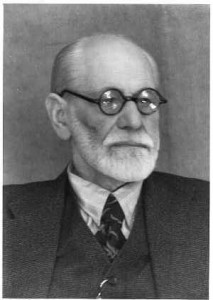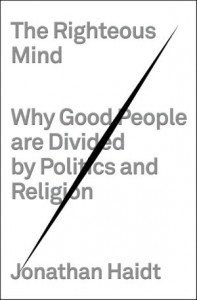This is mark Joseph “young” blog entry #25, on the subject of Novel Changes.
This is about the creation of my book Verse Three, Chapter One: The First Multiverser Novel, now being posted to the web site in serialized form. This “behind the writings” look definitely contains spoilers, so you might want to read the referenced chapters before reading this look at them. That link will take you to the table of contents for the book; links below (the section headings) will take you to the specific individual chapters, and there are (or will soon be) links on those pages to bring you back hopefully to the same point here. There were also three similar previous mark Joseph “young” web log posts, #18: A Novel Comic Milestone (which provided this kind of insight into the first six chapters), #20: Becoming Novel (covering chapters seven through twelve), and #22: Getting Into Characters (for chapters thirteen through eighteen). This picks up from there.

There is some essential background to the book as a whole in that first post, which I will not repeat here.
Chapter 19, Kondor 7
I knew when I reached this point that I had kept Kondor in this world long enough. In some ways it’s a dull world, a routine in which you develop skills and have occasional interruptions but overall just keep doing the same thing from day to day. It never really creates a story, only character development. So I had decided it was time to move him elsewhere. My editor was surprised, though. He reacted, asking whether that was the whole story. On the other hand, it seemed important, too, to put the reader in mind of the fact that the characters would die and having died would continue in another universe, and this was a good time for that.
I wanted Kondor to take some high-tech equipment with him, specifically a medical kit and a kinetic blaster. He wouldn’t have had the latter as a medic, but he had trained on it as a security guard in the first trip, so it would be natural for him to take it if his own gun jammed, and not unreasonable for the jam to happen. Once the blaster was in his hand, it would not be at all surprising that he took it with him to the next world.
At this point Kondor first considers the view (attributed to Richard Lutz) that his own life, being immortal, is worth less than the mortal lives of others around him, and that particularly for those whom he counts as friends he should sacrifice himself to save them. I put Walters here because they had begun building a friendship earlier in the story, and it would be the person for whom Kondor would most likely make this decision.
My editor thought Kondor was quite arrogant in his attitude that he didn’t care whether Walters believed in an afterlife, because since he himself was certain there was no such thing Walters’ death would be the end for Walters. I made only minor changes. I think that attitude is arrogant myself, but people do hold it.
My recollection is a bit weak, but I don’t think I knew where Kondor was when I started talking about the forest. I just knew that I had Slade occupied with castles and wizards, and Lauren in an urban war against undead, and Kondor coming out of a space world, and I needed something different from all of those, so a forest seemed the place to be.
Chapter 20, Hastings 7
I wanted Lauren to have the parka because I was not certain where I would be sending her at this point, and I did not want cold to be a problem. Besides, I like parkas, and wore one for years; and a parka would cover a cowl, so she could wear the armor under it unseen.
C. J. Henderson and I used to debate on convention panels whether it was worthwhile to keep what in the trade is called a “writing journal”, that is, a notebook in which you write something (every day is recommended) just to keep writing. He says you should never write anything you can’t sell, and no one is going to buy those notebooks; I say that there is value in having them, and writing them, as long as you remember to look back at them. The line about “automobiles giving their body parts that others might continue” came from one of my journals, thoughts on a junkyard I had observed from a train, if memory serves.
I did the exploding car trick in play; at the time neither I nor Ed realized that there would not be gasoline in the tanks of cars in junkyards. By the time I wrote this I’d discovered that detail, so I had to add the notion of Lauren using her clairsentient skills to locate a car that would suffice.
I don’t know whether gasoline really would ignite if heated in a flameless environment, or whether it would merely boil. I do know that it is highly volatile, and if it did ignite it would go very fast and create a lot of pressure in a tank quickly.
I have no idea how the ghoul—his name was Bob in Ed’s game, but I changed it to Arnie—found my character, but this was how it went in-game.
Given that Lauren was flying and therefore not secured to anything, and that the plastic steel armor she wore would resist being penetrated, it made sense that the impact would transfer the force of the bullet into the motion of her body, and that if it were off-center (as is more likely) it would spin the body around. Anyway, that’s the way it went in game, and that’s the way I thought it would go here.
I have no idea whether the smoke was poisonous. My character avoided it because asthma was an issue for me (a weakness I neglected to give her), but it made sense for her to avoid it given that she did not know what it was.
Chapter 21, Slade 7
In the previous Slade chapter I had Torelle run the basic organizational orders to set up a working household, primarily so that Slade would take note and be able to do something of the same when he reached his own castle. I wasn’t interested at that point in trying to talk about what would happen if you didn’t know how to run a castle, and since most of it runs itself if properly delegated, I just needed Slade to be able to set up the basic operation and then let it run itself.
Oddly, Slade immediately establishes a kitchen staff, despite the fact that he does not have guests for quite a few years. However, eventually he does. I had not yet thought that far ahead.
I stepped into a problem with Slade, in that he thought in terms of unaging immortality. He would have concluded immortality from the fact that he had twice died and come back to life, but the concept of not aging does not necessarily follow from that (as Swift showed in Gulliver’s Travels, in the less well known section about those who never died but kept getting older indefinitely). It still bothers me; but then, Slade might have extrapolated it simply from the notion that if he were immortal he must be unaging, since old age would otherwise kill him eventually. Besides, the immortals of Highlander either did not age or aged very slowly after their first death, and that would have been the best analogy he could find to his own condition.
The tiered society of a feudal world is rarely considered, and since Slade has no family and knows only the Corlander nobles at this point, it was unlikely that he would have friends unless he found a way to make them. I had not explored the notion of the people under his protection, but they would have been peasants, and uncomfortable with a nobleman, and despite what he later does for Filp he probably can’t so easily do that for himself.
Deciding the distances between the castles was a bit of a problem. It was already established that Torelle’s was across the valley from another that belonged to Count Tork, and you wouldn’t have castles crowded against each other, as they would each be defending a defined territory. Also, Slade, Filp, and Ommiger got castles that did not previously belong to someone else, so they had to be in territories that were near the borders, while Torelle’s had belonged to the family seven generations earlier and so was if not in the middle at least surrounded by others as the kingdom expanded. I thought three days travel by horseback would be between twenty-five and fifty miles, and that would be at least reasonable without being boring.
As a footnote, I counted the nights because the nights were when he was more uncomfortable, and I wanted to convey that.
The phone number gag is not the first out-of-time reference in the book, but the suggestion is made that Slade had made others during his time with them. The chimney and the roller coaster, the Boy Scouts, maybe a few others were already there, but they set a flavor that this statement implies had continued in his conversation otherwise.
Torelle ought to have dispatched a courier to Slade sooner, so Slade could prepare for the wedding; but the fighter is pushing to put everything in order and establish himself, so he wouldn’t delay the wedding simply to invite the guests.
Torelle’s attitude about love for his bride fits with the world of arranged marriages in which he lives: love is something you choose to do toward the person selected for you to marry. He finds Slade’s notion that you marry the one you love strange because he was taught that you love the one you marry.
I never give the bride a name. She is identified as a later child of a higher ranking noble, which cements Torelle’s claim to his title and forms an important alliance for him. That matters to him, along with the fact that she is young and healthy enough to bear children. She would be too young by modern standards, but the right age by medieval ones.
It is also part of Torelle’s character that he is rather shallow and does not grasp the concept of relationships. To him, relationships are matters of status and authority—he has the relationship with his soldiers that they are under his command, and with his wife that she bears his children, and with his companions that they validate his title and position. The notion of spending time with friends is foreign to him; his life is about doing what he must to be whom he perceives himself to be.
It was also important that Slade see what Torelle did as lord, holding court and managing the land, so he could add that to what he was doing at home.
Chapter 22, Hastings 8
It had been with me for a while that this was not going to be the comic book series for which it was originally intended. That had had several impacts on the writing already, including that I paid less attention to the lengths of chapters and that I did not worry so much about cliffhangers. At this point, for the first time I skipped a story, moving Kondor behind the other two. I was not entirely certain how I was going to proceed with his story, and figured that it was enough of a cliffhanger that he awoke in a forest to hold the reader a bit longer.
I don’t remember what Ed had called the book the vampires wanted, but it sounded to me like it might have been borrowed from some published source. I created the name Book of Journeys to avoid that, thinking that it might be taken to describe paths one could take.
Gavin’s backstory is Ed’s work. Jackson he had sketched considerably less fully for me. The age I picked worked well later, when I was able to place him in Bethany’s time, but at this point I wanted him to be old enough to be powerful but not so old as some of the others.
There was in the game an encounter with a vampire called Lucien, who was apparently more powerful than Horta, but who left the city with nothing more than a polite visit to announce his departure. There were also two other strongholds (besides the Succubus Club that I turned into The Pit), one a coffee shop with jazz poetry readings, the other a live theater. I had not yet realized I would not be including any of that.
I do not now remember what name the werewolf cabby used, but it was something even less like a name. I went with Raoul Wolfe to capture the growl but make it seem like a real name. My editor thought that a werewolf named “Wolfe” was a poor choice, so I backwrote that it was not his name but the name he used for the cab license.
I think that I learned the name of Bob the Ghoul out of character, that is, as player information; injecting Arnie’s name into this conversation gave me the ability to convey it to the reader and to Lauren without difficulty.
The White Wolf vampire game often devolves to a game of politicking, and perhaps that was why I moved in the direction of internal power struggles as their weakness. Setting the vams against each other would prevent them from joining against attackers, or at least hinder their ability to do so.
Chapter 23, Slade 8
I’m not sure it was intentional, but I set up Torelle’s wife as the nameless nonentity who existed to decorate her lord’s home and mother his children. I had not yet conceived the romantic plotlines for Filp and Slade, but these were going to emerge in contrast to the “norm” of the world, which Torelle’s family was establishing.
This was consistent with the personality I was envisioning in Torelle, who was entirely self-absorbed. It occurs to me that it was very similar to a cavalier I played in a game once, a good person who did not really see the world beyond himself. There were some justifications for this, given the difficulties of communication even from the next fief; but it was also Torelle’s nature to be focused on himself.
Slade’s assessment that Omigger would not care about what Torelle had accomplished was also correct, because Omigger was also absorbed in his own world, although in a different way than Torelle. That is, Torelle thought that everyone ought to be interested in Torelle and what Torelle was doing; Omigger thought that everyone ought to be interested in the same kinds of things that interested Omigger, that were not about Omigger but were still narrowly connected to his own world.
Some of Omigger’s self-absorption is seen in his comments about using magic to learn about his friends; it’s not important enough to him to go to the trouble.
Omigger’s home is motte-and-bailey styled, a style I studied for the creation of the Vorgo world which comes up later.
Originally I had contrasted Omigger’s study against a “bookstore or library”, but while Americans tend to use the word “library” to refer to something institutional, a public library or a school or university library, other English speakers, including my Australian editor, would call the room where Omigger kept his books a “library”, and so the reference confused him. I lost something, I think, because when I say “library” I have more images of school libraries than anything else, but when I say “public library” I lose those in favor of something different; but hopefully it clarified the meaning for non-American readers.
The kind of arcane magic suggested by fantasy games, at least, tends to suggest something very technical, difficult to learn and involving careful techniques and correct understanding. This is not surprising when we realize that this type of magic was really invented at the same time science was invented, both as means of controlling the world around us, and only the latter actually worked. Omigger does that kind of magic, so the books he reads are more like technical journals than like religious texts.
I’m starting to draw Slade into being the reluctant magician. He’s very blue-collar in his thinking, and magic is too much like higher education for him. He’s only looking at it at this point because Omigger assumes everyone would want to know this stuff if they could learn it, and so he hasn’t really been offered anything else to do.
The comments about the value of the book (paperweight, doorstop, insomnia cure) were culled from comments made by my own Professor Immendorf at Luther College concerning a commentary volume on the prophets we had to acquire for one of his classes. I added tinder to the list, because it’s a joke made about traveling between universes that paper money becomes firestarter when you leave the world in which it was issued.
Chapter 24, Kondor 8
I had spent a lot of effort developing the Sherwood Forest setting for The First Book of Worlds, and it made a solid contrast against everything else currently in play in the book. I thought at the time that I was going to have Kondor learn the ambush skills and medieval weapons, coming out something like a medieval special forces soldier. Unfortunately, I didn’t see how to make multiple ambush scenarios interesting, and Kondor’s character pushed me in a different direction.
The technical data on guns and ammo matters in play, and players will know not only how much power is left on their weapons but how much damage that is likely to do. Trying to work that into a character’s perspective was more of a challenge.
The earliest English with which I am familiar is that of Wycliff, still over a century in the future; but it is comprehensible, barely, to an intelligent modern ear if you take your time with it. It might have been stretching things to suggest that Kondor and the merry men could understand each other with effort, but I wanted to include the language difficulty without belaboring it.
Interest in these “behind the writings” picked up a bit, so I’m still thinking they’re worth producing. Feedback is always welcome, of course.
[contact-form subject='[mark Joseph %26quot;young%26quot;’][contact-field label=’Name’ type=’name’ required=’1’/][contact-field label=’Email’ type=’email’ required=’1’/][contact-field label=’Website’ type=’url’/][contact-field label=’Comment: Note that this form will contact the author by e-mail; to post comments to the article, see below.’ type=’textarea’ required=’1’/][/contact-form]











